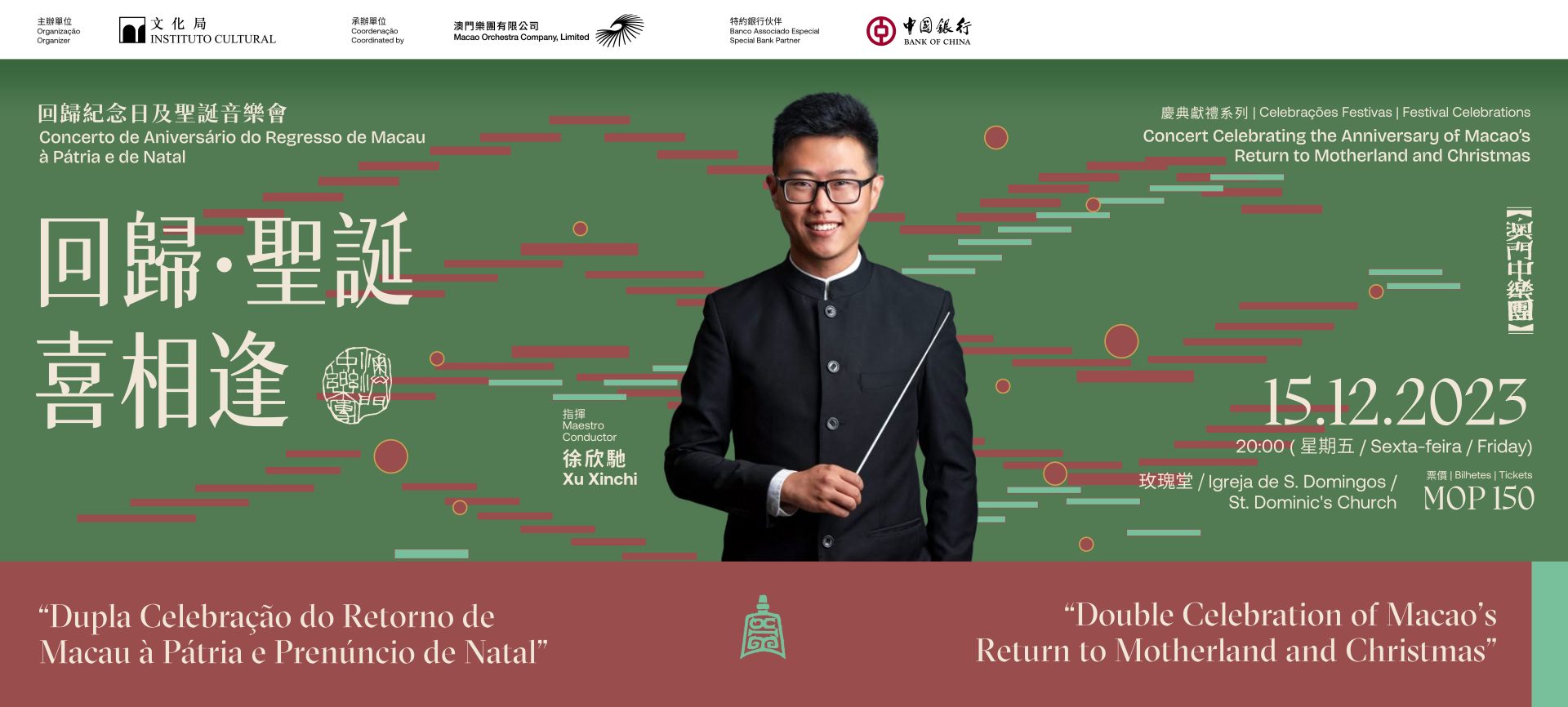Programme Introduction

“Double Celebration of Macao’s Return to Motherland and Christmas”
Programme Introduction
“Portuguese Celebration”
Comp. Rão Kyao Arr. Kuan Nai Chung
Come on. Come to my party with me. It’s for you too! Oh, my bacalhau, my wine, my olive oil, my guitar, my music! Santo António onde casei Meu São João padroeiro no Entrudo já fui Rei Pras festas sou o primeiro.
Come on. Get up. Dance. This vira is great. I came from afar with it. It rocked me in the waves and saw me through the storms. I landed with it here. Oh, twirl, twirl, twirl. Thanks for bringing me into safe harbour. We made friends and family, let’s enjoy the joy of our party. Always different, but ours. A Portuguese party. Oh, twirl, twirl dancing on the waves, in the balancing of ships and tankas. Oh, twirl, vira so close to us. Oh, twir, twirl… twirl. No!
“Silent Night”
Comp. Franz X. Gruber Arr. Kuan Nai Chung
The original lyrics were written in German and the melody was done by Franz Gruber, the principal of an Austrian elementary school.
“At Sunrise” Suona and orchestra
Comp. Tian Ding Arr. Lou mai shuo
The zither can always produce nice music yet good times cannot be retained.
Yet each musical note from it represents true feelings.
Adagio is reminiscence of the past, tinged with Master Zhuangzi’s bewilderment lost in the dream of possibly being a butterfly, as well as Emperor Wang’s desire of an amorous spring heart. Love precipitated in time, melodies flowing in the heart, music becomes an obsession, lingering, fluttering. Do I feel dismayed? Not really.
Finding light in the darkness of depression, one comes to know that behind the obsession stands persistence, in pursuing the original dream.
That dream is presented in the allegro’s bright, vivid rhythms, interconnected phrases, which give off a touch of youth.
They all say that the past cannot be changed, and youth cannot be retained. But with music and rhymes around and singing uttered, are we not reliving the free, passionate days of youth?
Life keeps moving forward, with untold fetters. May we understand each other in the melody and keep our love and friendship always fresh in the rhyme.
Joy to the world
Comp. Händel Arr. Kuan Nai Chung
As one of the most famous Christmas carols, the work conveys the idea that joy and love replace sin and sorrow.
“Ode to the Sun” Comp. Wang Dan Hong
The 3rd movement: Longing
Developed from the Bayu (Chongqing) region folk elements. The pieces have a strong Bayu flavour and cultural traits, profound emotional connotation and imposing power, showing the broader life spirit and tenacious vitality of the working people.
“Santa Claus is coming to town”
Comp. Haven Gillespie Arr. Kuan Nai Chung
is a well-known traditional Christmas tune, joyful, melodious and giving off strong Christmas vibes.
“Ave Maria”
Comp. G.Caccini Arr. Chan Sze Ngon
Selected and adapted from a collection of Catholic hymns.
“Guo Feng” Comp. Chiu Chi Ping
This piece is based on the ancient music “Three stanzas of plum-blossoms”, which symbolizes the fusion of old and new in Chinese music.
The Song of the Seven Sons
Comp. Li Haiying Arr. Hao Weiya
Song of the Seven Sons – Macao – the first piece of a series of seven patriotic poems written by Chinese poet and scholar Wen Yiduo in 1925 – depicts the struggle of the Chinese nation against destiny. This adaptation gives it a new charm and emotionality. The touching melodies of Song of the Seven Sons will make audiences feel the deep bond and love between Macao and the motherland.
